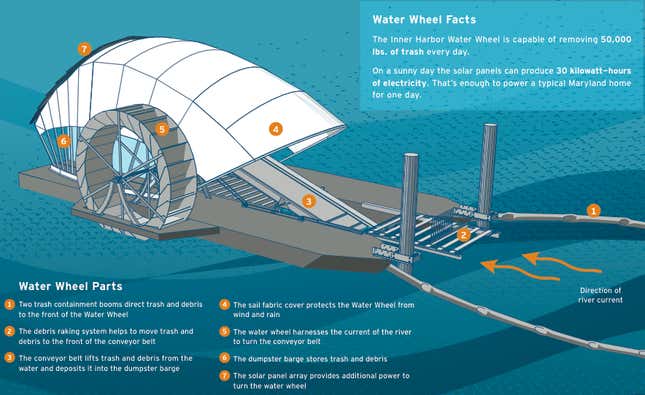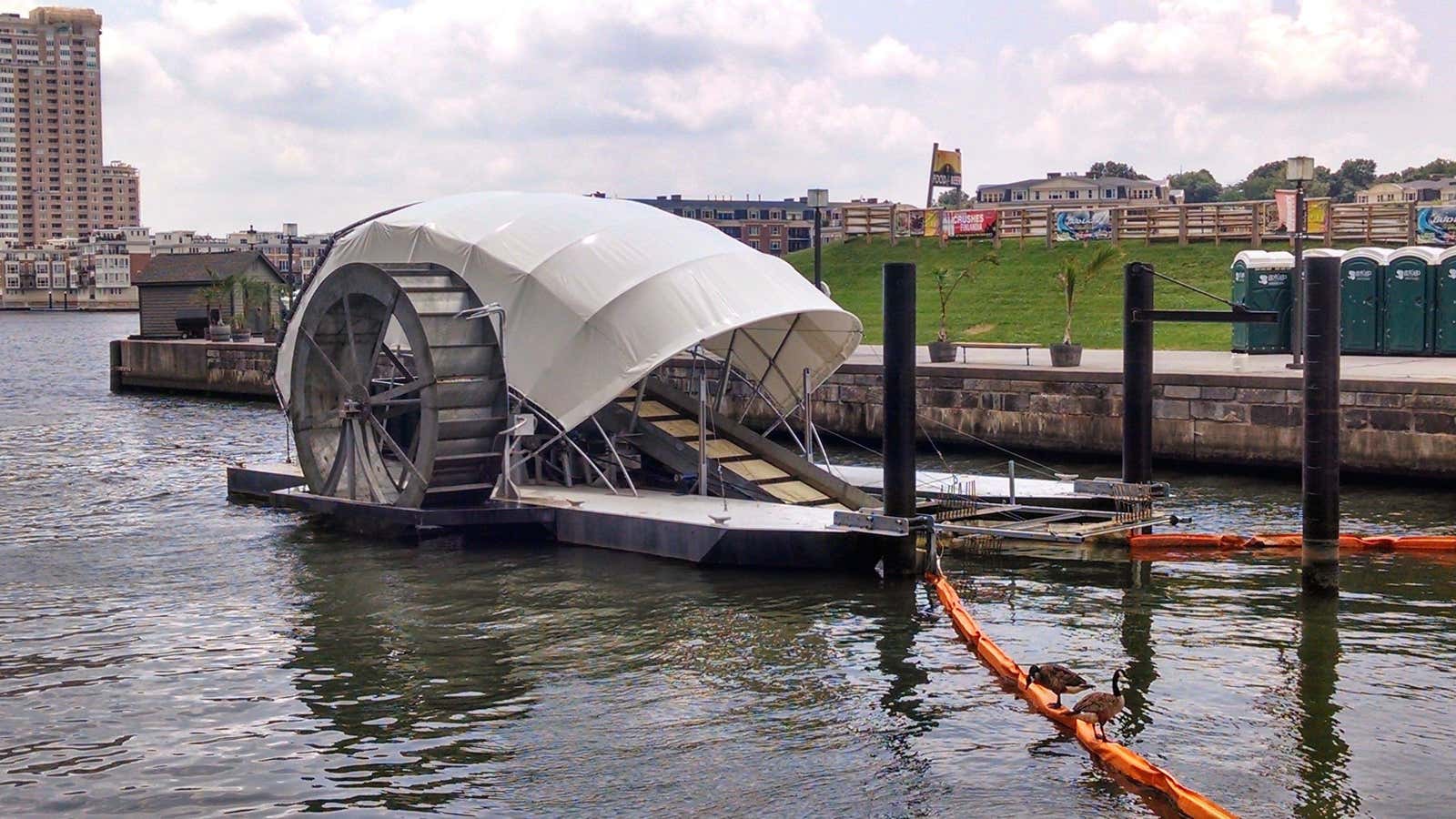This post has been updated.
There are at least one million tons of plastic in the ocean. Creative solutions abound, but few strike marine conservation experts as practical or praise-worthy. Too often, says ecologist Andrew David Thaler, projects like floating plastic-filter machines amount to little more than ”concept art.”
According to Thaler, a marine science PhD and ocean-science website editor, the first “truly feasible” contraption to reduce ocean plastic is already in use: a solar-powered water wheel in Baltimore, Maryland.

The machine was installed in Baltimore’s Inner Harbor, a landmark seaport on the Mid-Atlantic coast of the US, in May. The wheel sits at the outlet of one of the major rivers that flows into the harbor. Trash and debris from this river are lifted out of the water and into a dumpster barge via a conveyor belt.
The wheel is capable of processing 25 tons (or 23 metric tonnes) of garbage each day, though there has not yet been a day when it has come close to that. Between May 16 and June 16, the wheel intercepted about 50 tons (46 tonnes) of trash that had drifted down to the harbor from city streets and would otherwise have flowed through the Chesapeake Bay en route to the Atlantic Ocean.
“Major cites with tightly controlled tributaries are the perfect candidates for this technology,” says Thaler. The water wheel can capture debris from an entire watershed and prevent them from flowing into the ocean if it’s placed correctly, as it has been in Baltimore.
A video of the wheel operating during a rainstorm has accumulated one million views on YouTube. Representatives from Baltimore’s Healthy Harbor initiative, which is partly responsible for the wheel’s installation, said they plan to add lighting to make the wheel more visible at night. They are also thinking about installing a webcam so people can watch the wheel work from anywhere.
The wheel also has a Twitter account: Follow @MrTrashWheel to get a sense of what it’s like to eat trash all day.
The original version of this story incorrectly stated that there are at least “one billion” tons of plastic in the ocean. It should have said “million.”




